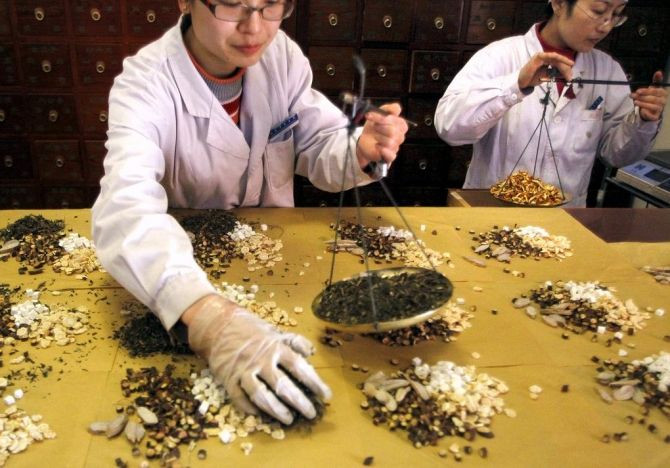Chinese Herbal Medicine Blamed for High Rate of Urinary Cancer in Taiwan

A substance found in some traditional Chinese herbal remedies is being blamed for the high rate of upper urinary tract cancer in Taiwan, a country where the incidence of the disease is the highest reported compared to anywhere else in the world.
Aristolochic acid (AA), recognized by the U.S. Department of Health and Human Services as a powerful nephrotoxin and human carcinogen associated with chronic kidney disease and UUC, has been linked to more than half of the UUC cases in Taiwan, according to findings published in the Proceedings of the National Academy of Science.
The toxic compound, extracted from the birthwort plant, is commonly found in traditional Asian weight-loss, headaches, joint pain, and stomach ailment remedies.
AA’s toxicity was originally revealed in the 1990s when a group of healthy Belgian women developed renal failure and UUC after taking Aristolochia herbs to lose weight.
"From a group of fewer than 200 patients in Belgium, and a geographically confined rural population in the Balkans, the circle of cancer risk due to AA exposure has now grown to potentially global proportions," researcher Marc De Broe from the University of Antwerp, who was not associated with the latest study, said in a statement.
Previous research, also published in the Proceedings of the National Academy of Sciences, found that about a third of the population in Taiwan has taken AA in recent years, and that the prevalence of urinary tract and kidney cancer are about four times higher than in Western countries where its use is less common.
"We believe our latest research highlights the importance of a long-overlooked disease that affects many individuals in Taiwan, and, by extension, in China and other countries worldwide, where Aristolochia herbal remedies traditionally have been used for medicinal purposes," lead author Dr. Arthur Grollman from Stony Brook University in New York said in a statement.
Grollman said that because the cancers are relatively rare, that fact that Taiwan had the highest occurrence of both cancer and this renal meant that something was going on inside the country.
Researchers studied 151 patients with urinary tract cancer, and found that 60 percent showed specific mutations linked to the AA.
After the herb is eaten, the acid forms a particular kind of lesion in the renal cortex, and gives rise to a particular TP53 tumor suppressing "signature" mutational gene associated with many types of cancer, researchers wrote in the study.
Although AA was banned in the U.S., it is still difficult to control because it is available on the internet.
"The findings provide a solid foundation for public health officials to develop strategies designed to eliminate aristolochic acid nephropathy and related upper urinary tract cancer," Grollman stressed.



























